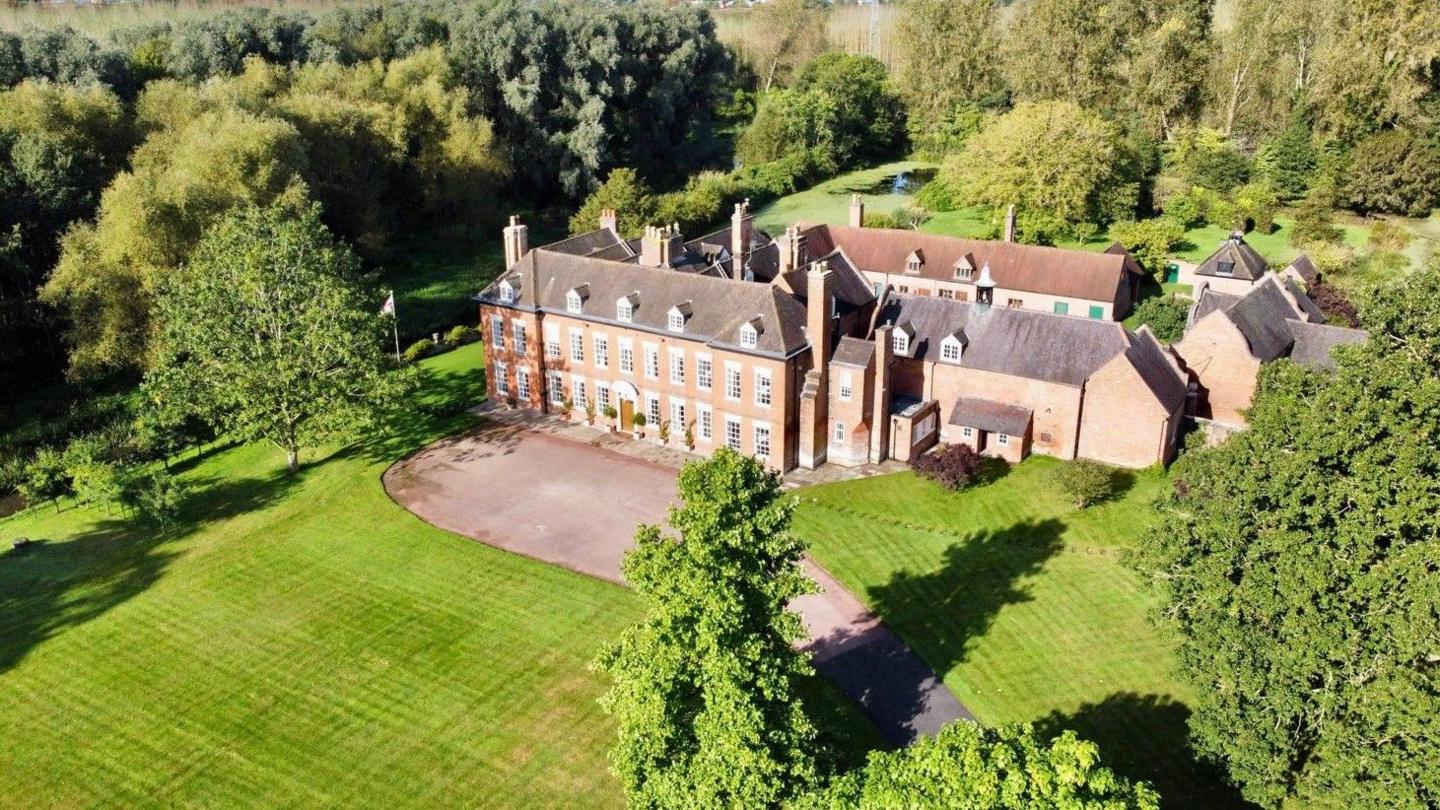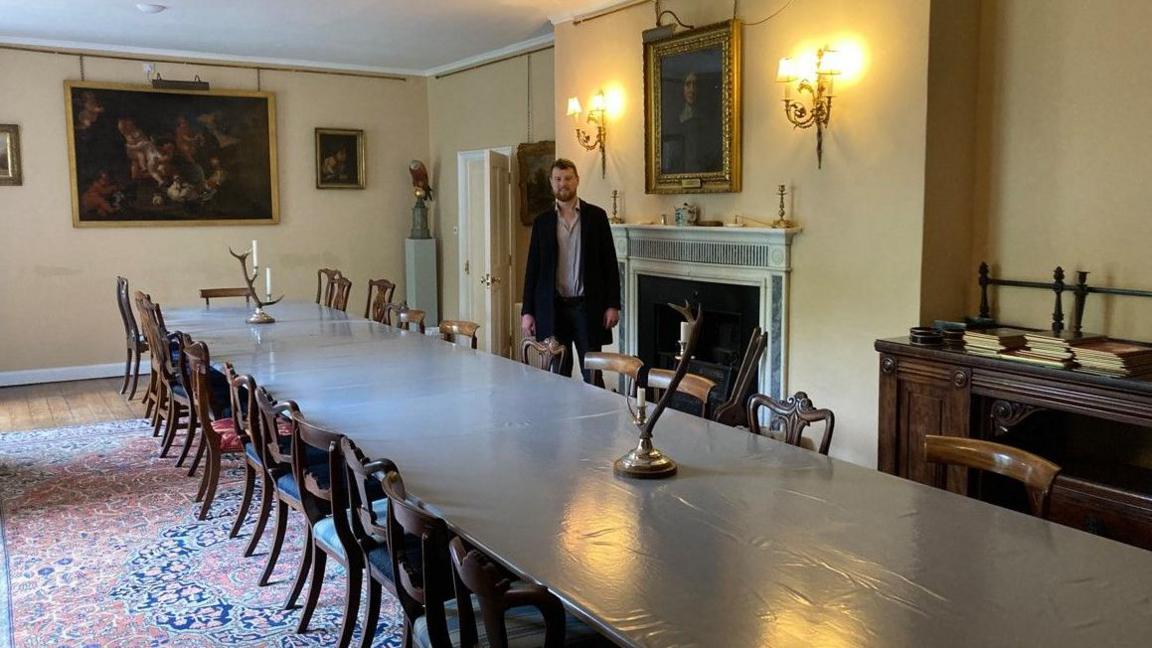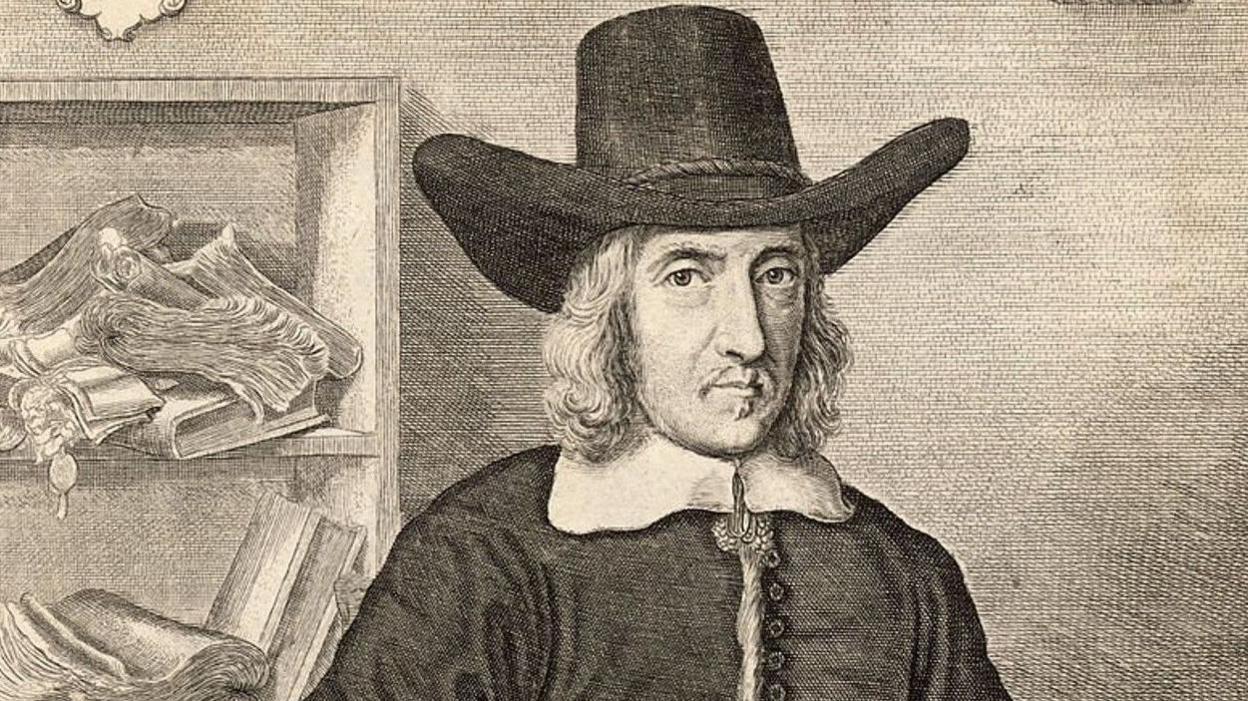Family opening 17th Century stately home to public

The River Blythe runs through the heart of the gardens, at Blyth Hall
- Published
A Grade I-listed stately home, whose owner is one of the 12th generation of his family to live there, is to be opened to the public for the first time.
Blyth Hall near Coleshill, Warwickshire, was originally bought 399 years ago by historian Sir William Dugdale, who was part of King Charles I's court.
Its latest resident, 31-year-old William Dugdale, inherited it from grandfather Sir Bill Dugdale - a former Aston Villa chairman and ex-Prime Minister David Cameron's uncle.
Mr Dugdale, who is also known as Will, will open the house for events, conferences, house parties, meetings and historical tours, in order to help fund its upkeep.
Mr Dugdale said the stately home, where the River Blythe runs through the gardens, would also be a venue for the community to have meetings there.
The 17th Century country manor house accommodates up to 30 people in 13 bedrooms.
Mr Dugdale grew up at the family's other estate, Merevale Hall near Atherstone.
But according to Blyth Hall, he spent part of his childhood at Blyth, where Sir Bill - a chairman of Severn Trent Water Authority - and second wife Cylla, neé Mount, David Cameron’s aunt, lived.
"Blyth was... set in lush parkland by the dreamy river. I always loved the hearty, fattening Christmases there," Mr Dugdale said.

Blyth Hall has been the Dugdale family home since 1625 - and it is now owned by William Dugdale, 31
The 17th Century scholar Sir William Dugdale, who bought the hall in 1625, was "arguably the greatest historian of his era", according to Blyth Hall.
Mr Dugdale said he "became the highest-ranked herald in the land, the Garter Principal King of Arms".
"In addition to sort of keeping track of which families had which coats of arms and stuff like that, he would also be responsible for the odd punishment as well of errant nobles," he said.
"Even under Oliver Cromwell after Charles’s execution in 1646, William’s research was considered so important he was allowed to keep working while under house arrest and living quietly at Blyth."

Sir William Dugdale was a 17th Century scholar and landowner
He said opening up the site made sense, adding: "I really love seeing the place full of people enjoying themselves.
"Some say it feels like living in a Jane Austen novel – though with nice bathrooms and plumbing that works."
Follow BBC West Midlands on Facebook, external, X,, external and Instagram, external, Send your story ideas to: newsonline.westmidlands@bbc.co.uk, external